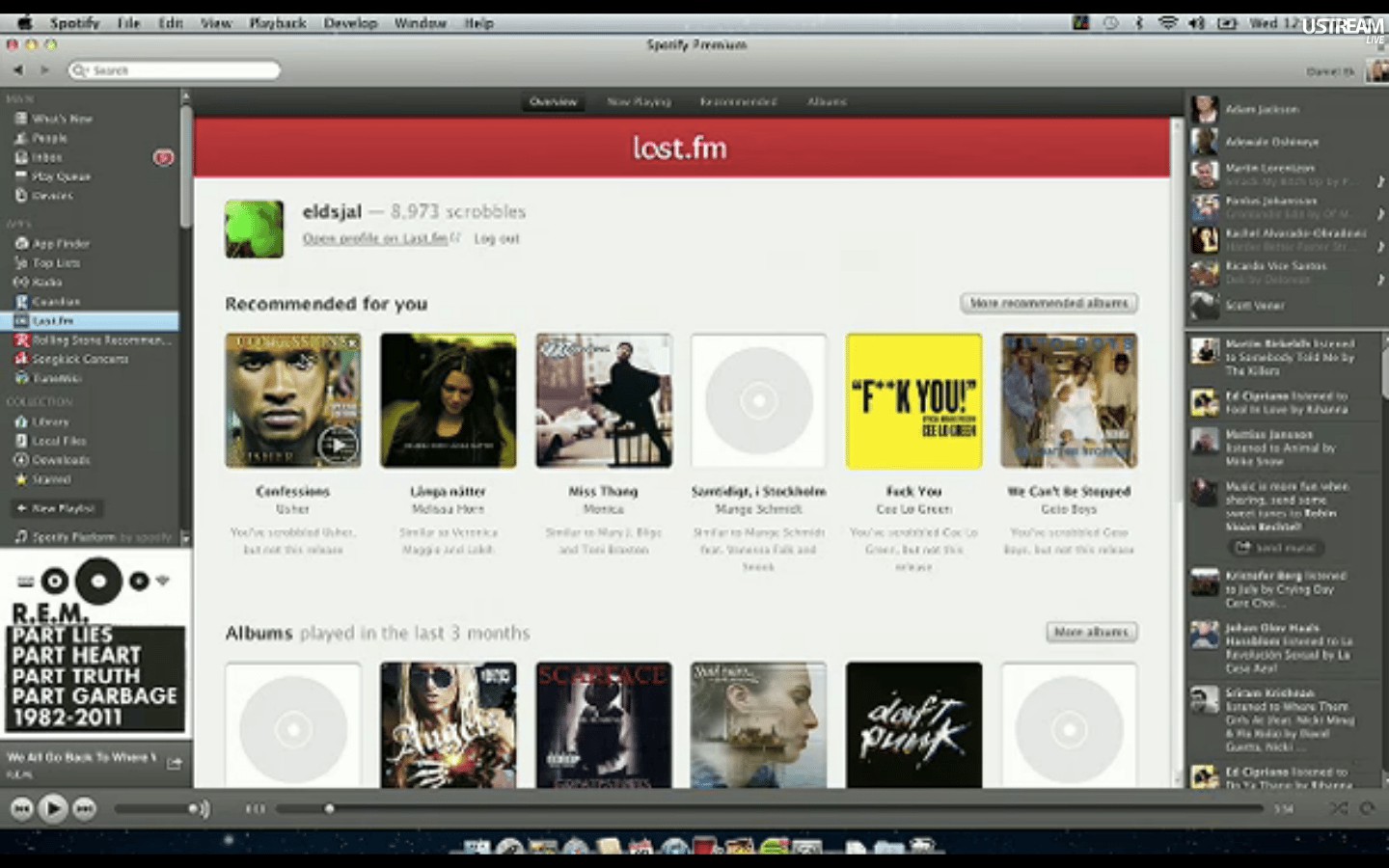
The economics of personalised online radio seem as challenged as ever, with Pandora recently calling for lower royalty rates.
And now Last.fm is cutting back even further on playing tunes, as it struggles to turn a profit for owner CBS.
The service, which is celebrating its tenth anniversary currently, will in 2013 require subscription for the “radio” features of its desktop client in the US, UK and Germany, and will stop offering the service elsewhere in the world except Canada, Australia, New Zealand, Ireland and Brazil (announcement). Curiously, web radio will remain free.
 A CBS VP with Last.fm oversight told me in 2010 it hoped to turn a profit that year, but we have since received no confirmation, when asked, that has yet happened.
A CBS VP with Last.fm oversight told me in 2010 it hoped to turn a profit that year, but we have since received no confirmation, when asked, that has yet happened.
Last.fm introduced the £3-a-month subscriptions belatedly in March 2009 as it dawned on the industry that ad-supported music streaming could not support online businesses in the same way it does traditional radio. A year later, it abandoned on-demand music streaming — the most costly of all to license.
Instead, Last.fm is happy to advise users to listen instead through services like Spotify, which have overtaken it in the sexy stakes and inside which Last.fm now even has an app of its own. At the end of the day, why shouldn’t Last.fm charge for the same kind of service Pandora does?
With less and less music — at least, free music — Last.fm is reverting to its original core concept of tracking listening habits (or, “scrobbling”) and making connections through the data. The site is celebrating its tenth birthday by outputting historic artist and track popularity data as charts in press releases. Like a 90s boy band reforming for one last tour, if there were a more potent illustration that much of the value of Last.fm — which CBS acquired for $280 million in 2007 — is in the past, I don’t know what it would be.
 But this diminished focus is, at the same time, joyous — for, connecting data about songs and their listeners has always been Last.fm’s strong suit…
But this diminished focus is, at the same time, joyous — for, connecting data about songs and their listeners has always been Last.fm’s strong suit…
- Any lapsed Last.fm users like me who revisit the site today will find the recommendations and gig listings based on their listening habits are excellent.
- When experienced inside Spotify, Last.fm’s recommendations are one of the best things about the Swedish music player, which has lacked meaningful discovery features until last week’s upgrade announcement.
- Meanwhile, the Xbox Last.fm app, free for those who subscribe to a Gold Xbox Live membership, is an excellent way to program eclectic music during parties.
Last.fm’s radio subscriptions may keep ticking over with perhaps a couple of hundred thousand subscribers. But now it’s probably time to mine the music data, not the music itself, to find Last.fm’s real value.